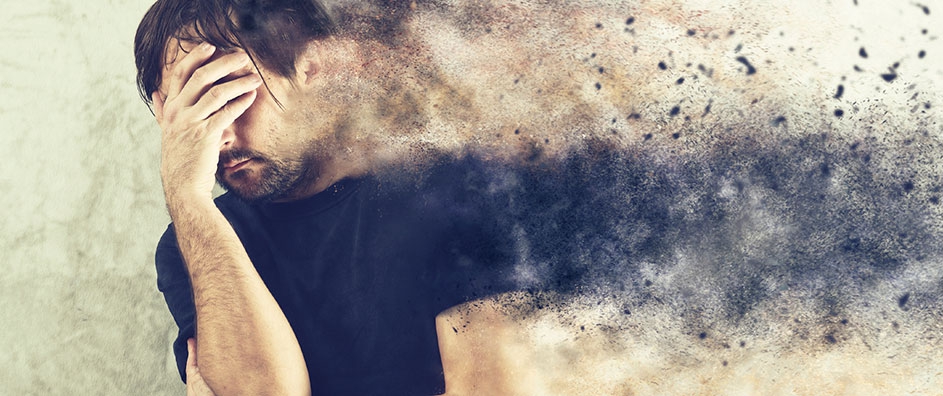The views expressed in our content reflect individual perspectives and do not represent the authoritative views of the Baha'i Faith.
Watching the movie Gone Girl got me thinking about the topic of mental illness. Although a riveting psychological thriller, this movie portrayed mental illness in a rare (and skewed) light.
According to recent research, adults with mental health disorders are seldom violent; they are more likely victims rather than perpetrators of violence. Furthermore, in a 2014 study of crimes committed by persons with serious disorders of the mind, only 7.5 percent were related directly to symptoms of mental illness.
Here’s another fact about mental health disorders: they don’t discriminate. They affect every age, race, gender, culture, nation, and community. In fact, I’m sure everyone reading this article has either known someone with a mental health diagnosis, or has suffered the effects of such a disorder personally.
Our society has come a long way in our beliefs surrounding, and attitudes towards, mental illness. However, despite improvement in the public’s views, we must continue working together on eliminating the stigma attached to disorders of the mind, as well as helping those diagnosed to get the support and the healing they need. How can we achieve this goal? Education, caring and compassion, finding resources and treatment options, and involving spirituality in the healing process will all help us get there.
Education, a key first step in eliminating the stigma, involves learning more about mental health disorders. All of us can do that by first checking out sites like www.breakthestigma.org or www.nami.org. At www.susangammage.com, a Baha’i-inspired author offers numerous articles on mental health related topics.
 After education, caring and compassion form the next step on our path toward eliminating stigma. This step entails being accepting, supportive, and loving towards those diagnosed with mental illness. Try volunteering at a local mental health clinic, or donating to a local mental health fund. Be an understanding friend to someone who is afflicted with a mental disorder, or to their family. Regardless of their disorder, remember that they are humans in need of respect, acceptance, and love.
After education, caring and compassion form the next step on our path toward eliminating stigma. This step entails being accepting, supportive, and loving towards those diagnosed with mental illness. Try volunteering at a local mental health clinic, or donating to a local mental health fund. Be an understanding friend to someone who is afflicted with a mental disorder, or to their family. Regardless of their disorder, remember that they are humans in need of respect, acceptance, and love.
Finding resources and encouraging our loved ones (or ourselves) to obtain the help they need is an important next step. Depression, anxiety, embarrassment, and fear can often prevent people from seeking much-needed treatment. Help your loved ones in finding a viable option for them, whether it’s through cognitive-behavioral techniques, family therapy, individual or group counseling, medication, or addictions focus groups, to name just a few of the options available. Check out www.sevenvalleys.net, a website with links to Baha’i counselors and therapists from around the world, devoted to supporting those in need.
Many therapeutic regimens often neglect the most important part of us: our spirituality. Resources such as sevenvalleys.net and susangammage.com are particularly useful because they incorporate spirituality into their work.
The Baha’i writings indicate that mental illness, although a significant test and difficulty, does not affect the progress of the soul. For example, Baha’u’llah wrote:
Know thou that the soul of man is exalted above, and is independent of all infirmities of body or mind. That a sick person showeth signs of weakness is due to the hindrances that interpose themselves between his soul and his body, for the soul itself remaineth unaffected by any bodily ailments. – Gleanings from the Writings of Baha’u’llah, pp. 153-154.
In like manner, Abdu’l-Baha discussed the soul’s independence from being affected by mental, or even physical, illnesses:
The spirit, or human soul, is the rider; and the body is only the steed. If anything affects the steed, the rider is not affected by it. The spirit may be likened to the light within the lantern. The body is simply the outer lantern. If the lantern should break, the light is ever the same because the light could shine even without the lantern. The spirit can conduct its affairs without the body…. The human soul by means of this body can perform its operations, and without the body it can, likewise, have its control. Therefore, if the body be subject to disintegration, the spirit is not affected by these changes or transformations. –Abdu’l-Baha, The Promulgation of Universal Peace, pp. 416-417.
If you or someone you know suffers from a mental health disorder, please seek the advice of a competent physician, counselor, and/or therapist; seek the support of your loved ones; and pray and meditate. Although the soul is unaffected by the illness, prayer and meditation are powerful tools for bringing inner peace, joy, and acceptance. May the following prayer bring relief to you and your loved ones:
O Lord! Thou art the Remover of every anguish and the Dispeller of every affliction. Thou art He Who banisheth every sorrow and setteth free every slave, the Redeemer of every soul. O Lord! Grant deliverance through Thy mercy, and reckon me among such servants of Thine as have gained salvation. – The Bab, Baha’i Prayers, pp. 227-228.
















Comments
Sign in or create an account
Continue with Googleor